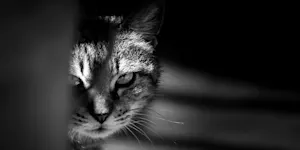What Makes This Word Tick
"Belie" is one of those intriguing words that often catches people off guard. It means to show something to be false or to misrepresent, which is a more sophisticated way of accusing someone or something of lying—without the harshness of yelling "Liar!" It’s elegant yet packs a punch, much like an unexpected crescendo in a symphony.
If Belie Were a Person…
Picture "Belie" as a wise, silver-haired gentleman in a well-tailored suit, who has a knack for spotting inconsistencies and revealing truths beneath the surface. He surprises everyone at dinner parties by unraveling mysteries in everyday conversation, always with a twinkle in his eye.
How This Word Has Changed Over Time
Historically, "belie" has kept its core meaning but has meandered a bit in its usage. Over time, it shifted from simply meaning "to lie around" in Old English to something more aligned with the modern sense of "contradict" by the Middle Ages. Today, it's often used in contexts demanding a sharp eye for detail.
Old Sayings and Proverbs That Use Belie
Though not common in proverbs, the spirit of "belie" can be found in sayings like "Appearances are deceiving." This captures the essence of how things can look one way but, upon closer inspection, reveal quite another story.
Surprising Facts About Belie
A surprising tidbit about "belie" is that it often pops up in legal and official contexts. It’s a favorite among lawyers and policymakers who enjoy the precision it brings to arguments about misrepresentation—with nary a courtroom drama going without it!
Out and About With This Word
In everyday language, you might hear "belie" used to describe anything from the weather that is unexpectedly sunny despite ominous forecasts to a seemingly kind neighbor who's not what they seem. It’s always about the contrast between expectation and reality.
Pop Culture Moments Where Belie Was Used
You won’t find "belie" shaking it with pop stars, but it does have its time in the spotlight among mystery novels and courtroom dramas. It’s the word you’ll hear when a calm surface masks chaotic depths, a favorite twist for writers and directors alike.
The Word in Literature
In literature, "belie" often appears in works with themes of deception or hidden truths. You'll see it in the pages of mysteries, thrillers, and classic novels where appearances can be misleading.
Moments in History with Belie
Throughout history, the spirit of "belie" could describe events like the fall of the Roman Empire, which from the outside appeared indomitable but faced internal crumble. It’s a word that captures the divergence between facade and fact perfectly.
This Word Around the World
Globally, the concept of "belie" is found in many cultures, often with words that translate to "mask" or "deception." For instance, in Japanese, "tatemae" describes the contrast between one's true feelings and what is expressed in public, embodying the essence of "belie."
Where Does It Come From?
"Belie" traces its roots back to Old English, from the prefix "be-" and "licgan," meaning "to lie." Over centuries, it has maintained its core function of suggesting falseness or contradiction.
How People Misuse This Word
People might misuse "belie" when they intend to mean "deny" or "refute." While similar, "belie" specifically means to show something to be false rather than simply reject it outright.
Words It’s Often Confused With
Deny: While both involve disagreement, "deny" is to refuse something outright, whereas "belie" shows it to be false.
Disprove: "Disprove" suggests using evidence to show something is false, whereas "belie" can be more about contradiction through appearance.
Contradict: "Contradict" can apply more broadly to any opposition, whereas "belie" implies that reality is not as it seems.
Additional Synonyms and Antonyms
Synonyms for "belie" include "contradict," "disguise," and "misrepresent." Antonyms might be "reveal," "confirm," and "validate."
Want to Try It Out in a Sentence?
"The friendly smile belied the cunning intentions hidden beneath." Now, wasn't that more enchanting than simply saying someone was two-faced?
















